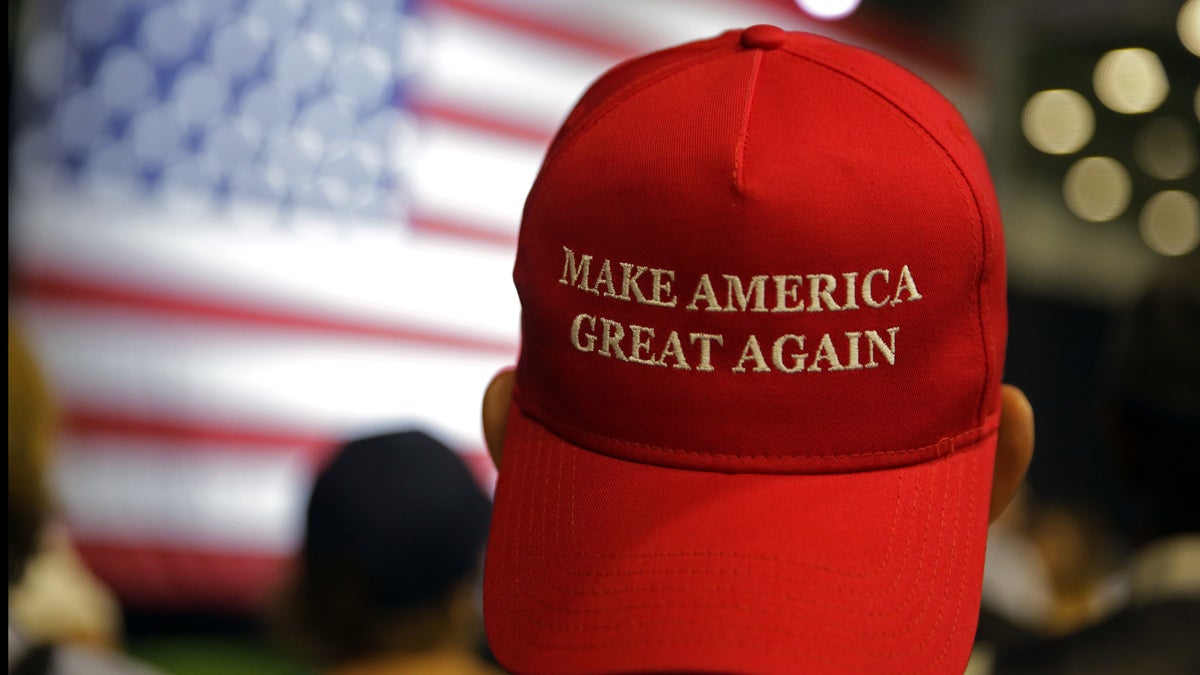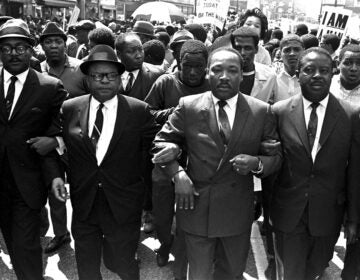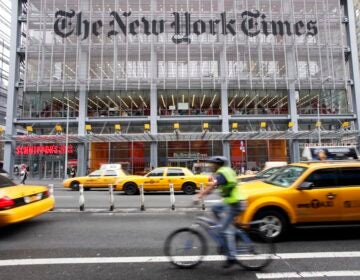Countering the deception of Trump’s ‘Make America great again’
What kind of message could counter the essential Trump narrative, the mantra "Make America Great Again!" Those four words are a code, of course, like all slogans.

Supporters of Republican presidential candidate Donald Trump wait for the start of a rally in Westfield
It’s not every night that we talk about counter-narratives at dinner.
But these are urgent times, and “pass the cole slaw” felt a bit shallow against the recent roil of events: two more black men dead from police shootings; five police officers killed by a deranged sniper’s bullets; days of insistent and widespread demonstrations.
There were six of us around the table, and after discussing a smorgasbord of other topics — baby names, local plumbers, blueberry-picking — our talk turned soberly to the week’s deaths and protests and, inevitably, to the electoral run-up of Hillary Clinton and Donald Trump.
Why, I wondered aloud, do Trump’s lies seem to slide from his unctuous surface, while his “crooked Hillary” sticks to this opponent like well-chewed gum? Why do some marginalized people believe the rich, white guy is on their side? Mostly, I wondered what kind of message could counter the essential Trump narrative, the mantra “Make America Great Again!”
Those four words are a code, of course, like all slogans. But Trump’s is a particularly insidious one. “Again” suggests a halcyon time of greatness, now ruined by feminism, immigration, secular humanism, the demise of “family values” (another coded, loaded phrase) — fill in the blank, depending on your constituency.
Every time he says it, I want to cue the opening theme of “All in the Family,” when the bigoted Archie Bunker crooned off-key nostalgia for the good old days (“didn’t need no welfare state … everybody pulled his weight”).
When, exactly, was America “great”? Perhaps in its formative days, when our complicated revolutionary heroes forged the bold experiment of democracy while codifying the exclusion of women and people of color?
Or maybe when that adolescent government’s thirst for territory led to state-sanctioned slaughter of Native Americans?
Or how about when New England textile mills churned out profits on the backs of child laborers?
Trump’s “great” probably isn’t meant to reach back that far. More likely, it’s shorthand for the postwar period when, for a hot second, it seemed that everyone had access to a college education, a Chevy Bel Air, and a brick house in Levittown. (Except, of course, that everyone didn’t.)
“Great,” where America is concerned, has always been more wished-for than actualized. It’s an aspirational word, and a dangerous one, because — especially in the mouth of an unrepentant racist like Trump — it implies greatness at the price of someone else’s smallness.
Then there’s the conspicuous lack of a subject in his mantra: Who, exactly, is supposed to make America great (again)? You? Me? The figure maneuvering behind the curtain? And through what mechanism — besides, of course, voting for the guy who’s yelping that phrase from one whistle-stop to the next.
Trump’s slogan is intentionally short on specifics. It’s purposely lacking in agency. It’s vague because it’s meant to appeal not to those who feel capable of shaping the political landscape, but to those who are the most beaten-down — jobless, house-poor, outsourced, outspent — who cannot fathom a way out of that squeeze and who are so accustomed to not having a voice that the bellicose Trump must seem to speak all their pent-up anxiety and rage.
So there we were, bowls of buttermilk-beet soup cleared and home-baked bread reduced to crumbs, nibbling on our rugelach and running out of time. “We need a counter-narrative,” I said. “Talking points for when you happen to sit down on the bus next to a Trump supporter.” A phrase just as succinct as his. Not driven by statistics. Not policy-wonkish. Just simple words that somehow, subconsciously, poke at our better selves.
“Think about it,” I told my pals as I hugged them goodbye at the door.
Two days later, while running in the park, I was still sifting through possible slogans. The best man for the job may be a woman? Nah, we used that one in the 1970s. Don’t vote for the mean guy? To the point, but I was hoping for something a little more pro-active.
While huffing up the hill from Valley Green to home, I got it.
Let’s Make America Kind. Starting now.
Note that there’s no “again” to trigger arguments that America wasn’t so kind to begin with (point taken). Note the implied subject pronoun “us” in the word “let’s.” While Trump’s slogan is an imperative (vote for me, and I’ll make America great; don’t worry your little heads about the actual details), this one is an invitation to all, reminiscent of John F. Kennedy’s exhortation to “ask not what your country can do for you. Ask what you can do for your country.”
Kindness is individual and communal, a grand mosaic pieced with thousands of small, subtle acts. It’s available every day, without charge or credentials, to any of us. You don’t have to wait until Nov. 8.
And you shouldn’t. Because Big Daddy, no matter how coiffed his hair or how swollen his wallet, isn’t going to save us from the mess we’re in. In fact, his jacked-up vitriol has only made it worse. Kindness isn’t the end — we need the grinding work and the political will to restructure housing policies and municipal funding, police behavior, and public schools — but, really, don’t we need kindness to animate it all?
Don’t we need to sign on to the essential, unshakable, revolutionary idea that other people’s lives are every bit as valuable as our own, and therefore we must treat them with tender respect, whether at the grocery store or in the polling booth?
Team Hillary, dinner guests, swing voters: Are you listening? Let’s Make America Kind. And pass the cole slaw. Please.
WHYY is your source for fact-based, in-depth journalism and information. As a nonprofit organization, we rely on financial support from readers like you. Please give today.




